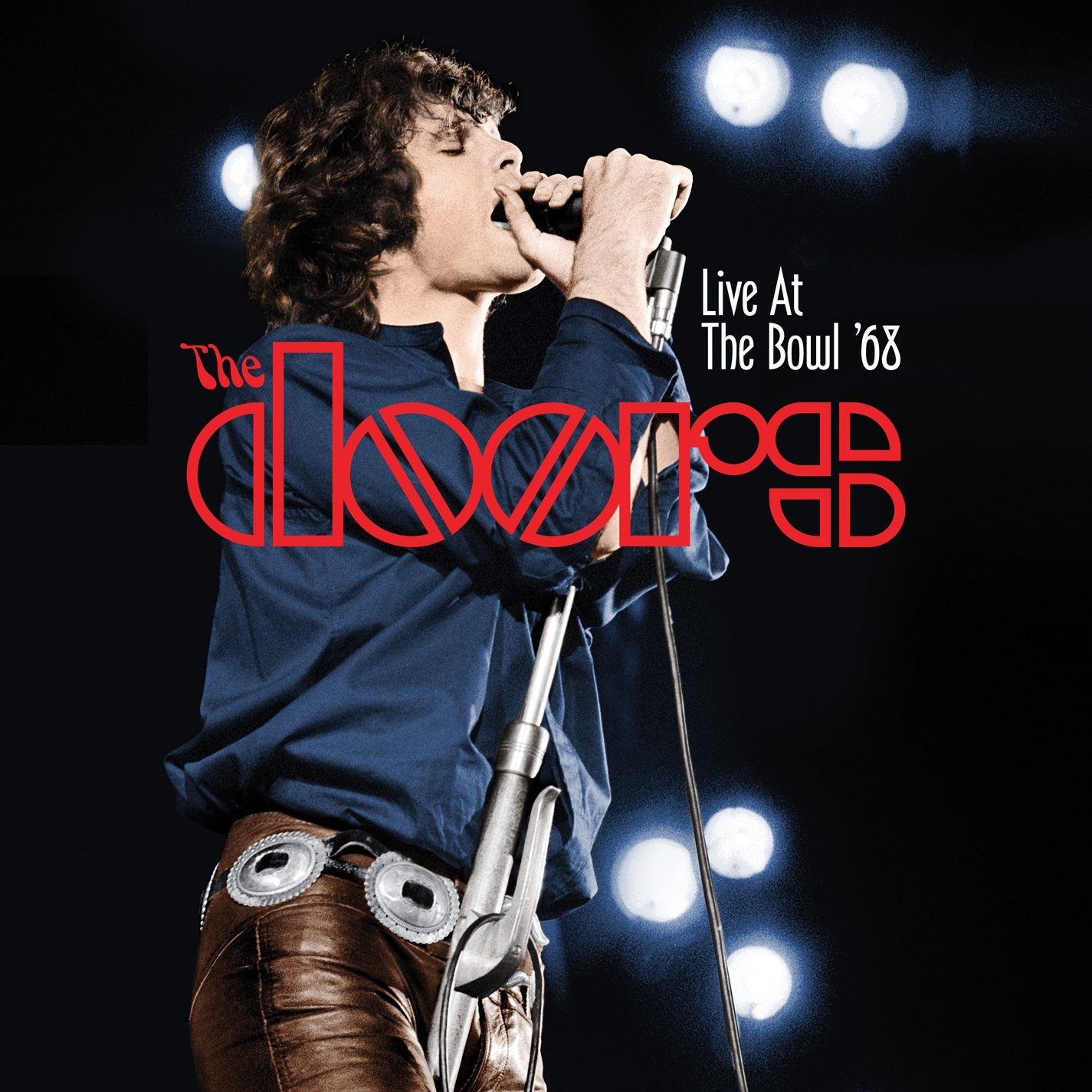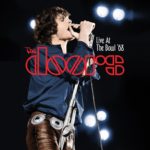
Rhino
There are many good reasons for you to pick up The Doors’ Live at the Bowl ’68 in its new editions. The DVD is a beautifully restored version that uses original camera negatives, remixed and mastered audio multi-tracks, includes three previously unreleased songs from the 15 played that night and has bonus features that shed light on the main presentation. The CD expands on 1987’s Live at the Hollywood Bowl release by adding 13 tracks and, like the DVD, making it a complete document. Together, they chronicle an extraordinary moment in the band’s career and displays its contribution to rock ‘n’ roll’s growth as an art form.
The homecoming concert on July 5, 1968 at the legendary Hollywood Bowl solidifies why they named themselves after Aldous Huxley’s recollection of a hallucinogenic experience in “The Doors of Perception.” Like that book, John Densmore, Robby Krieger and Ray Manzarek created a psychedelic perfect storm that acts as a strong hypnotic melody for “When the Music’s Over” and “Light My Fire” then gets down ‘n’ dirty for a run through “Back Door Man”>”Five to One”>”Back Door Man” or weds the instrumentation into Jim Morrison’s poetic outbursts (“The WASP (Texas Radio and the Big Beat),” “Horse Latitudes” and “Wake Up!”).
Minus the production values of modern concerts, there’s an innocent quality to watching the quartet play on a ramshackle platform set up in front of the legendary venue’s bowl-shaped stage with only a set of white lights used for illumination. Although Morrison is trippin’ during the 70-minute set, his massive charisma keeps you in anticipation of every feral movement, improvised moment and lysergic development. Despite not being all there he manages to keep it together, allowing him and the band to work in full possession of their artistic powers; so much so that even something as small as an infantile belch that breaks up the building dramatic tension of “Music’s Over” becomes as much a significant act of defiance as the did-he-or-didn’t-he chant of “fuck” during “Light My Fire” and the drama contained in “The Unknown Soldier” and “The End.”
All of this happens before disinterest, drugs and booze tear away at the band as a live entity and make later performances either petulant acts of rebellion or dangerous performance art. At the Hollywood Bowl that evening the Doors made good on their vision of rock ‘n’ roll until the final notes drifted through the Hollywood Hills.



No Comments comments associated with this post